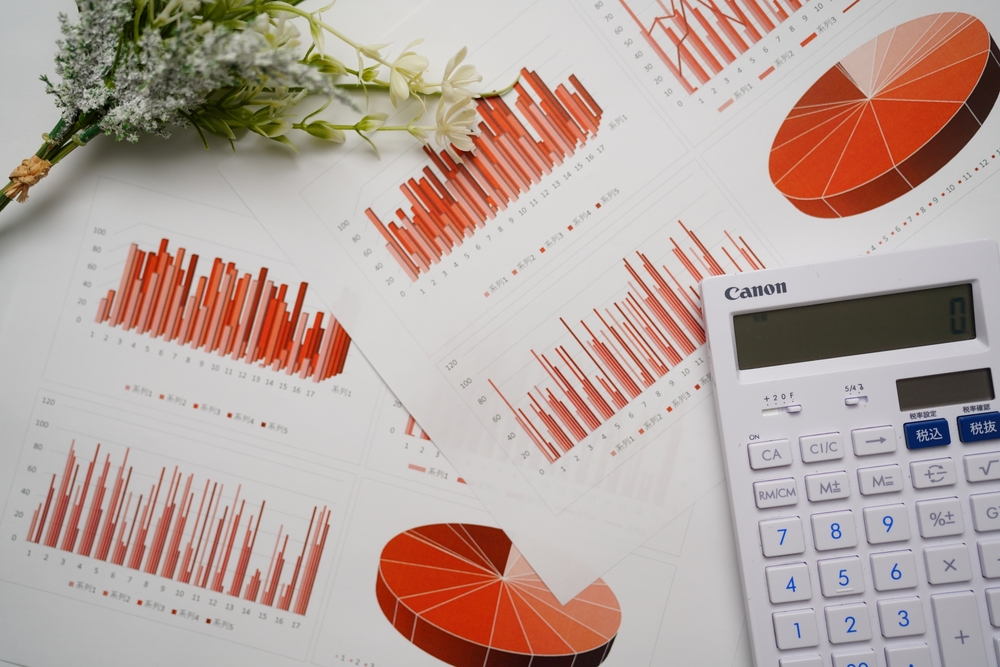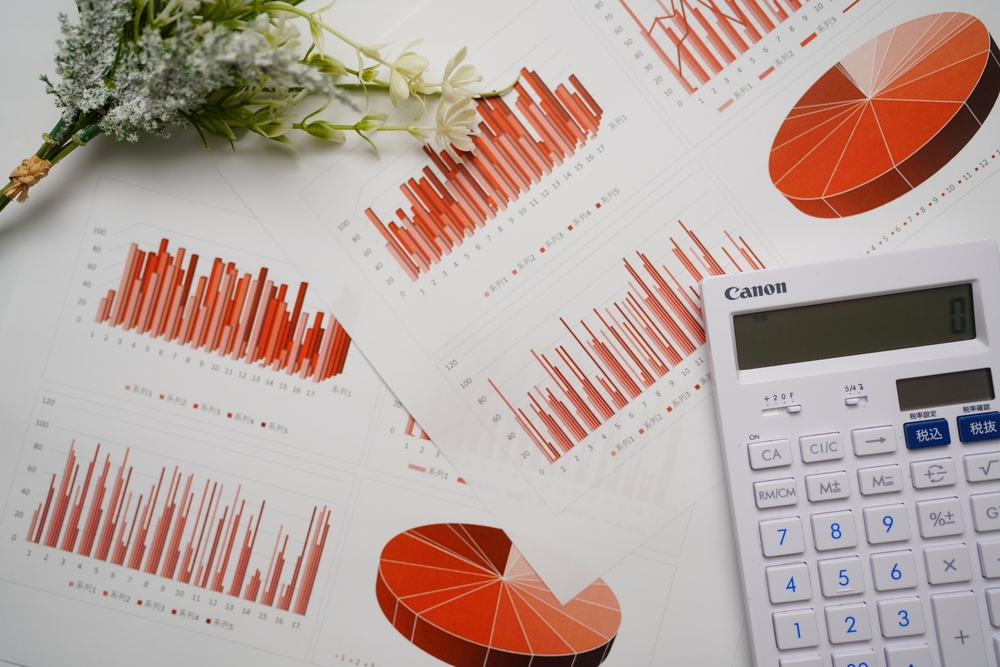近年、あらゆる分野でデータが活用されています。それに伴って注目されている仕事がデータサイエンティストです。データサイエンティストは、データ活用におけるスペシャリストであり、DX化が進む現代社会で年々活躍の場が広がっています。
そこで今回は、データサイエンティストについて知るために、仕事内容を解説するとともに、魅力やなるための方法を紹介していきます。これまでの経験や培ってきたスキルを活かしてデータサイエンティストになりたいと考えている方は必見です。

近年、あらゆる分野でデータが活用されています。それに伴って注目されている仕事がデータサイエンティストです。データサイエンティストは、データ活用におけるスペシャリストであり、DX化が進む現代社会で年々活躍の場が広がっています。
そこで今回は、データサイエンティストについて知るために、仕事内容を解説するとともに、魅力やなるための方法を紹介していきます。これまでの経験や培ってきたスキルを活かしてデータサイエンティストになりたいと考えている方は必見です。
In recent years, data has been used in all fields. The job that has been attracting attention as a result is that of data scientist. Data scientists are specialists in the use of data, and their fields of activity are expanding year by year in today's increasingly DX-oriented society.
In this article, we will explain the job description and introduce the attractiveness of data scientist and how to become one. If you are interested in becoming a data scientist by making use of your experience and the skills you have cultivated, this is a must-see.

データサイエンティストは、アルゴリズムを実装したり、分析モデルを構築したりする専門性の高い職種です。統計学や機械学習の理論、分散処理などのテクノロジーについて深い知見を有しています。
データサイエンティストに必要なのは、機械学習のフレームワークを扱うためのスキルや多くのデータをスピーディに処理するスキルなどです。それぞれの状況に合わせて適切なフレームワークを選定して分析モデルの構築に活用したり、よりスピーディにデータを処理するにはどうすれば良いのかを試行錯誤したりします。
具体的には、ディープラーニングで使われることが多いTensorFlowやKeras、PyTorch、Chainerといったフレームワークに関して理解し、扱える必要があります。また、データのスピーディな処理を行うために必要とされている分散処理フレームワーク(HadoopやSpark)などの技術の仕組みを理解し、適切に使いこなせるようになることもデータサイエンティストにとって重要です。

A data scientist is a highly specialized position that implements algorithms and builds analytical models. They have in-depth knowledge of statistics, machine learning theory, distributed processing, and other technologies.
Data scientists need skills to work with machine learning frameworks and to process a large amount of data quickly. They select an appropriate framework for each situation and use it to build analytical models, or they conduct trial and error to determine how to process data more speedily.
Specifically, you will need to understand and be able to use frameworks such as TensorFlow, Keras, PyTorch, and Chainer, which are often used in deep learning. It is also important for data scientists to understand how technologies such as distributed processing frameworks (Hadoop and Spark) work, which are needed for speedy processing of data, and to be able to use them appropriately.

データサイエンティストの魅力には、データ分析といったニーズの高い技術を習得できることや転職市場で有利に働くことなどがあげられます。続いては、これらの魅力について深堀していきます。
データサイエンティストは、効果的な分析を行うためにデータの準備・整理から行います。データの準備・整理は、データを分析できるようにする際に必要なプロセスで、データディスカバリや変換、クリーニングといった作業が含まれます。
データディスカバリは、データの分析によって他のやり方では失われている可能性がある洞察を明らかにすること、クリーニングは分析の対象を機械学習に学ばせるために、そのアルゴリズムに則ってきれいに整理することです。
このように、機械学習を活用したデータ分析を行うために必要なスキルを、データサイエンティストになると習得できます。機械学習は、需要予測や画像認識・画像処理、自然言語処理、レコメンデーション(類似ユーザーへのおすすめ商品を提示する手法の1つ)など、多岐にわたる活用方法があります。
このように幅広い活用方法があることから、データ分析というニーズが高い技術を身に付けられるのは大きな魅力だといえるでしょう。
近年、多くの業界や業態でデータサイエンティストの需要が高まっています。企業が求めるスキルや経験を有していれば、年齢に関係なく引き合いが多いです。とくに、DX関連の人材として募集をかけているケースが多くみられます。
データサイエンティストとして転職を考えているなら、有利になる資格も把握しておくとスムーズに転職活動が進みやすくなります。データサイエンティストとして転職活動を有利に進めるために取得しておきたい資格をいくつかピックアップしましたので、参考にしてください。
| 情報処理技術者 | 国家資格である情報処理技術者試験は、情報処理推進機構(IPA)が実施しています。ITの専門性を示す資格で、試験内容はITストラテジスト試験やシステムアーキテクト試験など多岐にわたります。データサイエンティストとしての専門知識を持つ証として、有効な資格です。 |
|---|---|
| 統計士、データ解析士 | 統計士とデータ解析士は、一般社団法人実務教育研究所が行っている講座(統計士の場合は現代統計実務講座、データ解析士の場合は多変量解析実務講座)を修了すると取得できます。受験資格は定められていません。統計学の知識を身に付けられるのでおすすめです。 |
| Python3エンジニア認定基礎試験 | Python3エンジニア認定基礎試験は、データサイエンスの分野で多く使われているプログラミング言語・Pythonを使ったデータ分析の知識を問われる試験です。Pythonの基本的な知識や技術を証明するために役立ち、転職市場における競争力が高まります。 |
この他には、日本統計学会が公式に認定する統計検定2級、一般社団法人日本ディープラーニング協会(JDLA)が提供しているAI技術に特化したG検定・E資格もおすすめです。

The appeal of being a data scientist includes the ability to learn highly in-demand skills such as data analysis and to gain an advantage in the job market. The following is a deeper look at the appeal of data scientists.
Data scientists prepare and organize data for effective analysis. Data preparation and organization is the process of making data available for analysis and includes tasks such as data discovery, transformation, and cleaning.
Data discovery is the analysis of data to reveal insights that might otherwise be lost, and cleaning is the process of cleaning and organizing the data according to an algorithm that allows machine learning to learn the subject matter of the analysis.
Thus, becoming a data scientist provides the skills necessary to analyze data using machine learning. Machine learning has a wide range of applications, including demand forecasting, image recognition and image processing, natural language processing, and recommendations (one method of presenting product recommendations to similar users).
With such a wide range of applications, it is a great opportunity to learn the much-needed skill of data analysis.
In recent years, the demand for data scientists has increased in many industries and business categories. If you have the skills and experience that companies are looking for, there are many inquiries regardless of age. In particular, there are many openings for DX-related personnel.
If you are considering a career change as a data scientist, it will be easier to make your job search go smoothly if you are aware of the qualifications that will be advantageous to you. We have picked up a few qualifications that you should acquire in order to make your job search as a data scientist easier.
| Information Processing Engineer | The Information Technology Engineer exam, a national certification, is administered by the Information-technology Promotion Agency, Japan (IPA), and certifies IT expertise. It is a valid certification as proof of expertise as a data scientist. |
|---|---|
| Statistician and Data Analyst | Statisticians and data analysts can be obtained after completing courses offered by the Institute of Practical Education (Modern Statistics Practice Course for statisticians and Multivariate Analysis Practice Course for data analysts). There are no set exam qualifications. It is recommended as it provides knowledge of statistics. |
| Python3 Engineer Certification Basic Exam | The Python3 Engineer Certification Basic Exam tests knowledge of data analysis using Python, a programming language widely used in the field of data science. |
Other recommended certifications include the Statistics Certification Level 2, which is officially recognized by the Japan Statistical Society, and the G-Certificate and E-Certification, which are offered by the Japan Deep Learning Association (JDLA) and focus on AI technology.

データサイエンティストの仕事内容は、主にデータ分析です。しかし、データ分析といってもその範囲は多岐にわたります。次は、データサイエンティストの主な仕事内容について解説していきます。
データを収集して分析するためには、解決しなければいけない課題を見極めたり、目標を明確にしたりする必要があります。企業が抱えている課題には、新商品の売上予測や商品・サービスの認知度アップ、プロダクトの改善、自社サイトのコンバージョンアップ、生産性の向上などがあげられます。ただし、課題を羅列するだけではなく、その背景にある要因を見極めなければ、適切な目標設定はできません。
明確な目標設定を実現するためにも、課題の細分化や優先順位付けを行います。データの適切な分析を行うことにより、達成すべき目標が明確になります。より目標を明確化するため、経営陣や関連する部署に対するヒアリングを実施する場合もあるため、自社の事業に関する理解を深めることも重要です。
ビジネスにおいて重要な指標となるKPI設計を行うのもこのフェーズです。KPIを設計する目的は、業務の進捗を可視化して課題を明確にしたり、評価基準を統一化して公平な評価を行ったりすることがあげられます。
企業が抱えている課題に関連するデータはいくつもあります。むやみにデータ収集や分析を行っても、課題解決に役立つ結果が出る可能性は低いです。目標を達成するために必要となるデータが必ず入手できるという保証もなく、入手できても社内ルールや法令などの制約があって使えないケースも往々にしてあります。
そのため、データがどこにあるのか、利用できるのかなどを調べた上で収集することが重要です。さらに、集めたデータをそのまま提示しても分析しにくいため、自社にとって必要な部分を抽出し、データを加工することもデータサイエンティストの仕事の一部です。
データの収集や加工は、BIツールなどを活用するとスピーディに進めやすくなります。
データ収集と加工が完了したら、分析するフェーズへと移っていきます。業務システムのログやWebサイト、SNSから収集したデータの運用もするため、分析環境の構築は必要不可欠です。
具体的には、プログラムの作成や収集したデータフォーマットの統一、保管するためのデータベース構築などです。流入数や経路、コンバージョン率などを知るために行うアクセス解析では、Googleアナリティクスなどのツールを活用できます。分析ツールを使うことで、大量のデータから平均値などの基本統計量をスピーディに手に入れられるのもメリットです。
収集したデータを運用する仕組みを1度構築してしまえば、さまざまな角度からデータを分析できるようになります。
データの分析を行ったら、仮説検証と評価を行っていきます。
仮説検証は、課題の原因を複数考え、データ分析をしながら立証していくことを指します。
たとえば、商品を販売する際に顧客の反応を予測し、そこから仮説を立てていくといったやり方です。
仮説が正しいと証明できるような結果が得られれば、次の段階にステップアップできます。期待するような結果が得られなかった場合は、仮説の立案からやり直さなければいけません。
いずれにしても、分析結果は関係者に報告します。そして、分析結果や分析モデル、結果を出すためのプロセスを評価することが必要です。
期待する結果が出たときは、分析結果などをビジネスに適用できるか検討し、分析の精度を向上したり、ほかの課題がないか発見するための議論を行ったります。期待するような結果が得られなかったときは、プロセス内のどこに問題があったのか検証し、次回に活かせるようにします。
最後に、データの分析結果に基づいたレポートを作成し、経営層に報告や提言を行います。
結果を経営者と共有することによって、最初に抽出した課題や目標を達成できているか、再確認できます。データ漏れやミスがあると意思決定に影響を与えてしまうので、責任感を伴う仕事です。

The work of a data scientist is primarily data analysis. However, data analysis covers a wide range of areas. The following describes the main tasks of a data scientist.
In order to collect and analyze data, it is necessary to identify issues that need to be solved and clarify goals. Some of the challenges that companies face include forecasting sales of new products, increasing awareness of products and services, improving products, converting their websites, and improving productivity. However, it is not possible to set appropriate goals without identifying the factors behind the issues, rather than just listing them.
To achieve clear goal setting, issues should be subdivided and prioritized. Proper analysis of data will clarify the goals to be achieved. To further clarify the goals, it is also important to deepen the understanding of the company's business, as interviews with management and relevant departments may be conducted.
The purpose of designing KPIs, which are important business indicators, is to visualize the progress of operations, clarify issues, and standardize evaluation criteria to ensure fair evaluation.
There are a number of data related to issues that companies are facing. Even if data is collected and analyzed unnecessarily, it is unlikely that the results will be useful in solving the issues. There is no guarantee that the data needed to achieve goals will always be available, and even if it is, there are often cases where it cannot be used due to restrictions imposed by internal rules, laws, and regulations.
Therefore, it is important to collect data after researching where the data is located and whether it can be used. Furthermore, since it is difficult to analyze the collected data even if it is presented as is, part of the data scientist's job is to extract the necessary parts of the data for the company and process the data.
The collection and processing of data can be facilitated by utilizing BI tools and other tools to speed up the process.
Once data collection and processing are complete, we move on to the phase of analysis. Since we also operate data collected from business system logs, websites, and SNS, it is essential to build an analysis environment.
Specifically, this includes creating programs, unifying the format of the collected data, and building databases for storing the data. For access analysis, which is performed to determine the number of inflows, routes, conversion rates, etc., tools such as Google Analytics can be utilized. Another advantage of using analysis tools is that you can quickly obtain basic statistics such as averages from a large amount of data.
Once a system for operating the collected data has been established, it is possible to analyze the data from various angles.
Once the data has been analyzed, hypothesis testing and evaluation are conducted.
Hypothesis testing is the process of considering multiple causes of an issue and proving them through data analysis.
For example, when selling a product, we can predict customer response and formulate a hypothesis based on that response.
If the hypothesis is proven to be correct, the next step can be taken. If the results do not meet your expectations, you will have to start over from the very beginning with the hypothesis.
In any case, the results of the analysis will be reported to the relevant parties. It is then necessary to evaluate the analysis results, the analysis model, and the process used to produce the results.
When the expected results are obtained, the applicability of the results to the business is discussed to improve the accuracy of the analysis and to discover if there are other issues that need to be addressed. When the expected results are not obtained, we examine where the problem was in the process and try to apply it to the next time.
Finally, we create a report based on the results of the data analysis, and report and make recommendations to management.
By sharing the results with management, we can reconfirm whether we are achieving the issues and goals we initially identified. This is a job that comes with a sense of responsibility, as any data omissions or errors can affect decision-making.

データサイエンティストになるためには、いくつかの方法があります。最後に、データサイエンティストになる方法を4つピックアップしてご紹介します。
データサイエンティストになるためには、データサイエンスに関する知識が必要です。そのため、データサイエンスについて学べる大学で勉強するのがおすすめです。近年、データサイエンス系の学部を設置している大学が増えているので、選択肢の幅は比較的広くなっています。
データサイエンスについて学べる学科は、情報工学科や情報システム工学科、情報理学科などです。情報学や統計学、プログラミング言語に関する知識・スキルなども合わせて学べる大学もあります。
システムエンジニアから転職する方の中には、PythonやR言語などのプログラム言語に触れた経験がある方もいます。
PythonやR言語といったプログラム言語はデータサイエンティストも使うので、経験があれば転職先から即戦力になれる人材だと期待されやすいです。データベースの構築・運用・保守といった業務を担うデータベースエンジニアとしての経験も、活かしやすいです。
マーケターやアナリストも、データサイエンティストに似ている仕事です。いずれも、ビジネスにおいてデータを駆使する専門的な人材です。
近年のマーケティング業務は、ビッグデータを分析してからビジネス戦略を立案するのが一般的な流れとなっています。データサイエンティストがいない企業では、マーケターや企画部がその領域を担当しています。アナリストは、証券会社など金融系の企業において、企業の経営状態や市場の分析などを行うのが主な仕事です。
データを取り扱うという点で似ているマーケターやアナリストの経験を積めば、ビジネスでデータを活用するスキルが身に付くため、データサイエンティストとしての実務でも活かしやすいです。しかし、プログラム言語やエンジニアに関する知識を持っていない場合は、転職前に学んでおく必要があります。
転職先の企業がキャリアチェンジプログラムなどの制度を用意していれば、利用してデータサイエンティストを目指すことも可能です。
社内制度を活用すれば、資格取得にかかわる費用を補助してもらえたり、業務に役立つ専門知識を身につけるための研修を受けられたりします。
データサイエンティストになるには、プログラミングをはじめとした幅広い知識が必要です。そのため、独学で必要な知識をすべて網羅するのは難しいといえます。スキルを習得できても、実務経験がなければキャリアチェンジのハードルは高くなります。

There are several ways to become a data scientist. Finally, we will pick four ways to become a data scientist.
To become a data scientist, you need to have knowledge about data science. Therefore, it is recommended to study at a university where you can learn about data science. In recent years, an increasing number of universities have established data science departments, so you have a relatively wide range of options.
Departments where you can study data science include the Department of Information Engineering, the Department of Information Systems Engineering, and the Department of Information Science. Some universities also offer courses in informatics and statistics, as well as knowledge and skills in programming languages.
Some people who change careers from systems engineers have experience with programming languages such as Python and R.
Programming languages such as Python and R are also used by data scientists, so if you have experience in these languages, your new employer is likely to expect you to be an immediate asset. It is also easy to make use of experience as a database engineer who is responsible for tasks such as database construction, operation, and maintenance.
Marketers and analysts have similar jobs to data scientists. Both are professionals who make full use of data in business.
In recent years, marketing operations have generally analyzed big data before formulating business strategies. In companies that do not have data scientists, marketers and planning departments are responsible for this area. Analysts are primarily responsible for analyzing the business conditions and markets of companies in securities firms and other financial companies.
If you gain experience as a marketer or analyst, which are similar in that they handle data, you will acquire the skills to utilize data in business, which you can easily apply in your work as a data scientist. However, if you do not have knowledge of programming languages or engineering, you will need to learn them before changing jobs.
If the company you are changing jobs with has a career change program or other system, you can use it to become a data scientist.
If you take advantage of in-house programs, you can receive subsidies for the cost of acquiring qualifications or training to acquire specialized knowledge that will help you in your work.
Becoming a data scientist requires a wide range of knowledge, including programming. Therefore, it is difficult to cover all the necessary knowledge by self-study. Even if you can acquire the skills, without work experience, the hurdles to changing careers are high.

データサイエンティストは、DX化が進む中で注目度が高まっている仕事です。データサイエンスに関する知識やスキルを持っていれば、DX化を目指している企業からも重宝がられます。情報処理技術者試験や統計士・データ解析士、Python3エンジニア認定基礎試験などの有資格者であれば、さらに活躍の場は広がりやすいです。
データサイエンティストになるための転職を考えている方は、外資系企業への転職もおすすめです。外資系企業への転職を成功させたいのであれば、外資系・グローバル企業への転職サポートを行っているユナイテッド・ワールドに登録してみてください。

Data scientist is a job that is gaining more and more attention as the shift to DX continues. If you have knowledge and skills in data science, you will be valued by companies aiming to DX. If you are a certified information processing engineer, statistician, data analyst, or Python3 engineer certification basic exam, you can easily expand your field of activity even further.
If you are considering changing jobs to become a data scientist, we also recommend changing jobs to a foreign company. If you want to succeed in changing jobs at a foreign company, register with United World, which provides support for changing jobs at foreign-affiliated and global companies.
